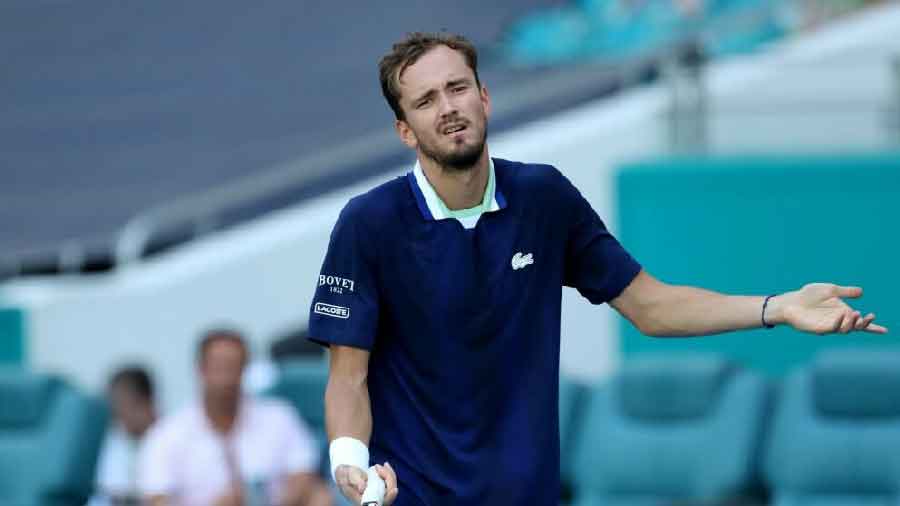George Orwell never quite endorsed the famed sportsman’s spirit. For Orwell, sport was a manifestation of ill-will. This sentiment has been granted immortality by his famous description of sport being “war minus the shooting”. Orwell was both wrong and right. Bad blood in international relations has often been cleansed by sporting competitions.
India’s cricketing tour of Pakistan in 2003-2004 played a role in smoothening bilateral ties — for a while. But this is not to suggest that sport has been free of shooting — real or metaphorical. A Colombian footballer was shot dead after it was alleged that his own-goal had led to Colombia’s exit from the football World Cup of 1994. The world of sport continues to be rattled by allegorical shootings. The latest instance is the decision by the All England Lawn Tennis Club not to allow Russian and Belarusian tennis players from participating in Wimbledon on account of Vladimir Putin’s predations on Ukraine. Novak Djokovic, the world’s top-ranked tennis star as well as a survivor of war in Serbia, has been vocal in his criticism of the AETC. Mr Djokovic’s view is that individual players should not be punished for the sins committed by the political leaders of their respective countries.
Mr Djokovic’s argument can be extended to raise a fundamental question: should sport and politics be kept apart? One way of answering this query is by pointing out the futility of such an endeavour. This is because sport — Orwell may well be chuckling — in essence, magnifies those very human instincts — competitiveness, prowess, skill, dominance, aggression — that fuel conflict. Unsurprisingly, sport as war has been a favourite with architects of political or ideological projects. Historians say that the Berlin Olympics of 1936 was as much about sport as Statecraft: Adolf Hitler saw in the Games an opportunity to legitimize anti-Semitism.
Yet, sport has also been an arena of resistance against transgressions. The Black Power Salute by two African-American athletes during a chapter of the Olympics is now revered as one of the most powerful indictments of racial violence in the United States America. In recent times, international athletes and teams have taken the knee to express solidarity with the global outrage at the murder of a Black man by white policemen in the US. The wise men at AETC seem to have ignored the potential of sporting competitions to serve as a podium to send across a message condemning crime — Mr Putin’s invasion of Ukraine is certainly one. Banning players from Russia and Belarus is a petty act: it blurs the lines and the values that ought to separate Britain and Russia. Tennis players from across the world could have been mobilized to let Mr Putin and his tribe of warmongers know that the world stands united against all forms of injustice and violence. Who knows, some Russian competitors may even have been swayed by such an endeavour. After all, several Russian citizens have bravely criticized their president’s lust for blood.
Sport is never apolitical. What must be achieved, however, is the right mix between sport and politics.











